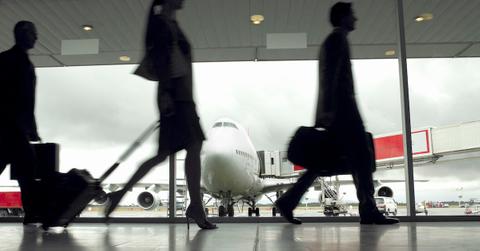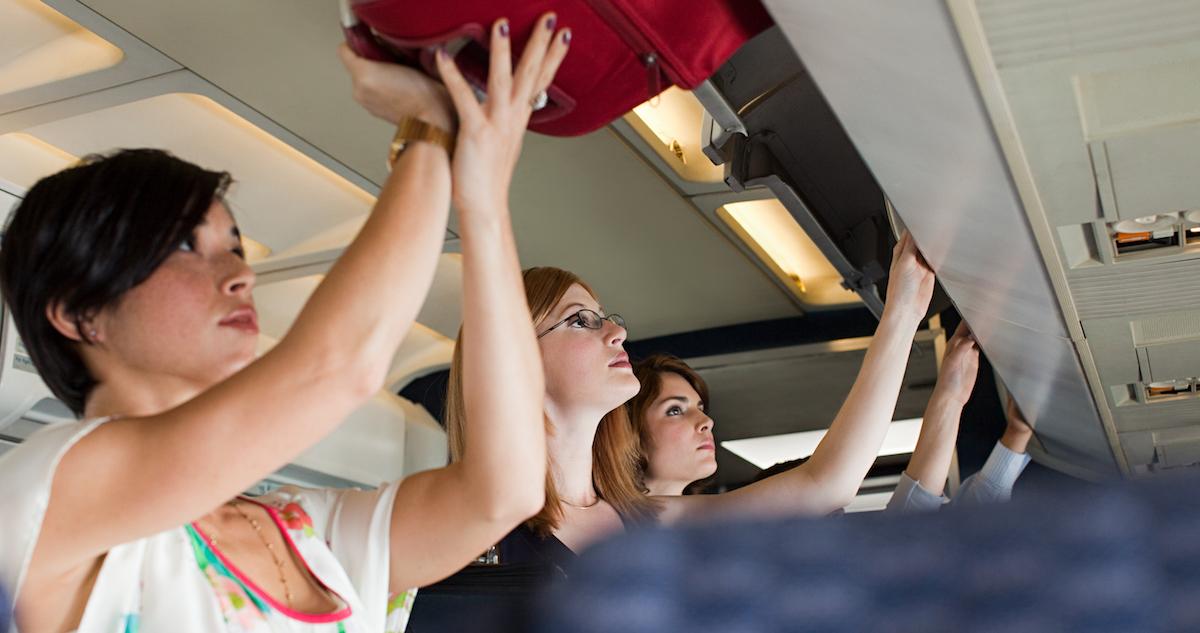What Is Flight Shaming, and How Is It Impacting the Aviation Industry?
Updated April 20 2021, 4:14 p.m. ET

As we continue to struggle to meet the demands of climate change, environmentalists hope to inspire travelers to forgo airplane travel in favor of lower impact pursuits. These eco-conscious groups are promoting the flight shame movement, to hopefully convince vacationers to change their plans, and ultimately force airlines to adopt more eco-friendly sources of fuel. But is this tactic of flight shaming actually effective?

What is flight shame?
The idea behind flight shame is to convince travelers to elect for more eco-friendly means of transportation — such as boat, train, or even bus. Flight shaming was popularized by teenage activist Greta Thunberg, who inspired Greenpeace and the Extinction Rebellion to carry on the message.
According to Bloomberg, a rise in popularity could lead to massive changes in the aviation industry including lower passenger numbers or higher taxes. What would be most desirable, however, would be if pressure from the movement wound up forcing airlines to switch to sustainable aviation fuel.
When did flight shaming start?
Greta Thunberg first made headlines when she skipped out on her flight to the 2019 United Nations Climate Summit in New York, in favor of a two-week Atlantic crossing via boat. She wasn’t the first Swede or Thunberg to flight shame, however. Swedish singer Staffan Linberg, Olympic athlete Björn Ferry, and Greta’s opera singer mother, Malena Ernman have all publicly declared their aversion to flying as far back as 2017, according to The Independent.

Why are people giving up flying?
For starters, it’s very bad for the environment. According to Forbes, air travel causes about 3 percent of all global carbon emissions. In the wake of the pandemic and with more than 4 billion passengers set to get on an airplane in the coming year, that number is expected to grow to 3.5 percent. Considering we don’t have a ton of time to lower emissions before the planet meets its projected carbon threshold, this is obviously not something we want to have happened.
Oddly enough, it’s not just the “hippies” that are flight shaming people into giving up their flights in favor of something less pollutive — some airlines are getting in on it too. Business Insider recently reported that Dutch airline KLM has begun asking its customers to “fly responsibly” and only use airlines when absolutely necessary. And they aren’t the only ones — even France has recently banned short flights to cut down on emissions.

Why is flying bad for the environment?
According to the BBC, mile for mile, flying is the worst way to travel in terms of climate and carbon emissions. For example, a flight from London to San Francisco emits about 5.5 tons of carbon dioxide per person. That’s more than twice the emissions produced by a family car in a single year. But CO2 isn’t the only way that planes pollute the planet.
Other compounds can also find their way into the atmosphere, including soot, and nitrous oxides. These create chemtrails that trap heat in the upper atmosphere, which winds up trapping the CO2 up there as well. If 4 billion people are chomping at the bit to fly out after they’ve received their vaccine, then a lot more of these pollutants are about to enter the atmosphere.

The decision to take a flight is ultimately up to you, of course. We don’t expect our world travelers or fellow environmentalists to give up on their honeymoons, volunteer missions, or family vacations. We do, however, want this to serve as a warning to those who might not have contemplated the environmental ethics of air travel. There are always closer destinations and other ways to travel, so perhaps it's time to consider them.